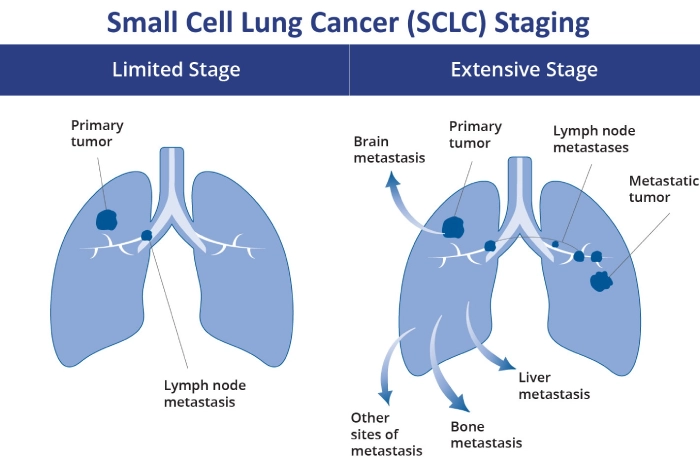Understanding Magnesium Supplements
In the ever-expanding world of nutritional supplements, the debate between magnesium citrate vs glycinate continues to spark interest among health enthusiasts. As a nutritional expert, I frequently encounter questions about the difference between magnesium citrate and glycinate, particularly from individuals seeking to optimize their magnesium intake.
Different Forms of Magnesium
When exploring magnesium supplements, you’ll encounter various forms, with magnesium citrate vs glycinate being among the most popular choices. Each form has unique properties that affect its absorption and therapeutic applications. Magnesium citrate combines magnesium with citric acid, while magnesium glycinate bonds magnesium with glycine, an amino acid. Understanding these distinctions is crucial when deciding between magnesium citrate or glycinate for your specific needs.
Bioavailability Comparison
The bioavailability of different magnesium forms significantly influences their effectiveness. When comparing magnesium citrate vs oxide or other forms, research indicates that magnesium citrate demonstrates superior absorption rates. The citrate form’s high bioavailability makes it a popular choice, especially when considering magnesium oxide vs magnesium citrate for therapeutic purposes.
Absorption Rates
The absorption mechanisms of magnesium supplements vary considerably. The ongoing discussion of magnesium citrate vs glycinate often centers around their respective absorption rates. Magnesium citrate’s absorption occurs primarily in the small intestine, where the citrate component helps enhance the mineral’s uptake.

What is Magnesium Citrate?
Chemical Composition
Magnesium citrate consists of magnesium bound to citric acid, forming a highly stable compound. This unique chemical structure contributes to its effectiveness and distinguishes it from other forms when comparing magnesium vs magnesium citrate supplements.
Manufacturing Process
The production of magnesium citrate involves a carefully controlled process that ensures optimal quality and stability. Manufacturers must maintain specific pH levels during production, which leads to frequent questions about what is the pH of magnesium citrate powder. The final product’s pH typically ranges between 6.0 and 8.0, contributing to its stability and effectiveness.
Available Forms (Powder, Tablets, Gummies)
Magnesium citrate comes in various forms to suit different preferences and needs. You can find it as:
- Magnesium citrate powder for flexible dosing
- Magnesium citrate tablets for convenience
- Magnesium citrate gummies for those who prefer a more palatable option
- Liquid formulations in a magnesium citrate bottle
Each form maintains the essential properties that make magnesium citrate effective while offering different advantages in terms of usage and absorption.
What is Magnesium Glycinate?
Chemical Structure
To fully understand the debate of magnesium citrate vs glycinate, we must examine magnesium glycinate’s unique structure. This form bonds magnesium to glycine, creating a compound that’s known for its gentle action on the digestive system.
Production Methods
The manufacturing process for magnesium glycinate differs from citrate, contributing to the distinct properties that influence the choice between magnesium glycinate vs citrate. This difference in production methods affects both the cost and the final product’s characteristics.
Common Product Forms
While discussing magnesium citrate vs glycinate, it’s worth noting that glycinate typically comes in fewer forms than citrate, most commonly available as tablets or capsules. This limitation in product forms can be a deciding factor when choosing between magnesium glycinate or citrate supplements.
Key Differences: Magnesium Citrate vs Glycinate
Understanding the difference between magnesium citrate and glycinate is crucial for making an informed supplement choice. Let’s explore these key distinctions to better understand what is the difference between magnesium citrate and magnesium glycinate.
Absorption and Bioavailability
When comparing magnesium citrate vs glycinate, absorption rates play a crucial role. Magnesium citrate shows excellent bioavailability, particularly in the digestive tract. Meanwhile, magnesium glycinate tends to be better absorbed through different pathways, making the choice between magnesium glycinate vs citrate dependent on individual needs and health goals.
Cost and Accessibility
The cost consideration between magnesium citrate vs glycinate often influences consumer choice. Generally, magnesium citrate tends to be more economically priced and widely available. This accessibility factor sometimes makes people choose magnesium citrate or glycinate based on their budget constraints.
Side Effects Profile
The side effects profile differs when comparing magnesium citrate vs glycinate. Magnesium citrate may have a stronger laxative effect, while glycinate is often gentler on the digestive system.
Benefits of Magnesium Citrate
Digestive Health
Magnesium citrate’s effectiveness in promoting digestive health is well-documented. When considering magnesium oxide or citrate for digestive support, citrate often emerges as the preferred choice due to its gentle yet effective action. A common question is “do i drink the whole bottle of magnesium citrate” for digestive purposes – the answer depends on individual needs and should be discussed with a healthcare provider.
Mineral Absorption
The citrate component enhances overall mineral absorption, making it an efficient choice when comparing magnesium oxide vs magnesium citrate. This improved absorption can lead to better outcomes for those seeking to address magnesium deficiency.
Sleep Quality
Research suggests potential benefits of magnesium citrate for sleep. Many users report positive experiences when using magnesium citrate tablets or powder before bedtime. The calm magnesium citrate formulations are particularly popular for this purpose.
Magnesium Citrate vs Other Forms
Magnesium Citrate vs Oxide
When evaluating magnesium citrate vs oxide, several factors come into play. Magnesium oxide is more concentrated but typically less bioavailable than citrate. This comparison of magnesium oxide vs magnesium citrate helps users understand why citrate might be preferable despite its lower magnesium content.
Comparison with Other Magnesium Types
Beyond the common comparison of magnesium citrate vs glycinate, it’s worth examining how citrate compares to other forms. Each type has its unique properties, absorption rates, and therapeutic applications, making the choice of magnesium vs magnesium citrate an important consideration.
Dosage and Administration
Recommended Daily Intake
The appropriate dosage varies based on individual needs and the specific form used. Whether choosing magnesium citrate powder or magnesium citrate tablets, following recommended guidelines is essential for optimal results.
Proper Usage Guidelines
Usage guidelines differ depending on the form – magnesium citrate gummies, tablets, or liquid solutions each have specific instructions. The question of what medications does magnesium citrate interfere with is particularly important, as timing and interactions must be carefully considered.
Timing Considerations
Proper timing can enhance the effectiveness of magnesium supplementation. This is particularly relevant when using magnesium citrate for sleep or other specific purposes.
Safety and Precautions
When evaluating magnesium citrate vs glycinate supplements, safety considerations should be paramount. Both forms have their own safety profiles that deserve careful attention, particularly when choosing between magnesium glycinate vs citrate for specific health conditions.
Potential Side Effects
Understanding the difference between magnesium citrate and glycinate becomes crucial when considering potential side effects. Magnesium citrate may cause:
- Digestive changes
- Mild dehydration if not taken with adequate water
- Electrolyte imbalances in some cases
It’s important to note that these effects can vary significantly when comparing magnesium citrate vs glycinate, as glycinate typically causes fewer digestive issues.
Drug Interactions
The question of what medications does magnesium citrate interfere with is critical for safe supplementation. Notable interactions may occur with:
- Antibiotics
- Blood pressure medications
- Some osteoporosis drugs Always maintain a gap of at least 2 hours between taking magnesium citrate and other medications.
When to Avoid
Some situations warrant extra caution when considering magnesium citrate or glycinate supplementation:
- Severe kidney disease
- Heart rhythm disorders
- Certain neuromuscular conditions
Special Considerations for Different Users
Athletes and Fitness Enthusiasts
For athletes choosing between magnesium citrate vs glycinate, several factors come into play:
- Training intensity and recovery needs
- Hydration status
- Timing around workouts Many athletes prefer magnesium citrate powder for its flexibility in dosing and quick absorption.
Elderly Population
When considering magnesium oxide or citrate for older adults, several factors deserve attention:
- Absorption efficiency
- Medication interactions
- Ease of use
Pregnant Women
Pregnant women often ask about the difference between magnesium glycinate and magnesium citrate. Key considerations include:
- Absorption rates
- Morning sickness impact
- Safety profiles during pregnancy

Product Forms and Selection Guide
Liquid Solutions
Magnesium citrate liquid solutions come in various concentrations, typically in carefully measured bottles. Users should pay close attention to concentration levels listed on the magnesium citrate bottle, as these directly impact dosing requirements. Proper dosing techniques vary by product and intended use, making it essential to follow specific product guidelines rather than assuming all liquid forms can be used interchangeably. Proper storage of liquid solutions is crucial to maintain their efficacy and stability over time.
Tablets and Capsules
Magnesium citrate tablets provide a convenient option for precise dosing. When comparing magnesium citrate vs glycinate tablets, several factors come into play: tablets vary in their ease of swallowing, some being coated for smoother ingestion. The release rate differs between products, affecting how quickly the magnesium becomes available in your system. Absorption efficiency can also vary depending on the tablet’s formulation and whether it’s taken with food or on an empty stomach.
Powders and Gummies
Both magnesium citrate powder and magnesium citrate gummies offer unique advantages for supplementation. Powders provide superior dosage flexibility, allowing users to adjust amounts precisely for their needs. While gummies offer a more enjoyable experience, their fixed dosage may require multiple pieces to reach desired levels. The pH level of powder forms particularly matters for proper mixing and storage, affecting both stability and taste. Each form’s absorption rate varies, with powders typically showing faster uptake when properly dissolved.
Storage and Stability
When comparing magnesium citrate vs glycinate supplements, proper storage plays a crucial role in maintaining effectiveness. Understanding what is the difference between magnesium citrate and magnesium glycinate extends to their stability requirements as well.
pH Levels and Stability
The question of what is the pH of magnesium citrate powder is particularly relevant for storage considerations. The stability of magnesium citrate vs glycinate can differ based on environmental factors such as:
- Temperature variations
- Humidity exposure
- Light exposure
Storage Requirements
Different forms require specific storage conditions:
- Magnesium citrate powder should be kept in a cool, dry place
- Magnesium citrate bottle products need protection from light
- Magnesium citrate gummies require careful temperature control
Shelf Life
Understanding shelf life differences between magnesium citrate vs glycinate helps ensure optimal supplementation results.
FAQs
Common Questions About Usage
Q: What is the difference between magnesium citrate and glycinate?
A: When comparing magnesium citrate vs glycinate, the main differences lie in their absorption mechanisms and effects. Magnesium citrate tends to have a more pronounced effect on digestive health, while magnesium glycinate is often gentler on the stomach.
Q: Should I choose magnesium citrate or glycinate?
A: The choice between magnesium glycinate vs citrate depends on your specific needs. Consider factors like digestive sensitivity, intended use, and absorption preferences.
Q: How does magnesium citrate vs oxide compare?
A: When evaluating magnesium oxide vs magnesium citrate, citrate typically shows better absorption rates, though oxide contains a higher percentage of elemental magnesium.
Safety Concerns
Q: What medications does magnesium citrate interfere with?
A: Several medications can interact with magnesium supplements. Always consult healthcare providers about potential interactions.
Q: Do I drink the whole bottle of magnesium citrate?
A: The appropriate dosage depends on your specific needs and the product concentration. Always follow product instructions or healthcare provider guidance.
Product Selection
Q: Which form is best for sleep – magnesium citrate vs glycinate?
A: Both forms can support sleep, but many users report positive experiences with calm magnesium citrate formulations.
Conclusion
Making the Right Choice
The debate between magnesium citrate vs glycinate continues, but understanding their unique properties helps make informed decisions. Whether choosing magnesium citrate or glycinate, consider:
- Individual health needs
- Absorption preferences
- Specific therapeutic goals
- Cost considerations
Final Recommendations
When deciding between magnesium glycinate vs citrate:
- Consider your primary health objectives
- Evaluate your sensitivity to different forms
- Consider practical factors like cost and availability
- Consult healthcare providers for personalized advice
Remember that the difference between magnesium glycinate and magnesium citrate may affect individual responses. Start with recommended doses and adjust based on your body’s response and needs.
The choice of magnesium vs magnesium citrate, or between any other forms, should be based on scientific evidence and individual health requirements rather than marketing claims alone. Whether you choose magnesium citrate tablets, powder, or other forms, ensuring proper usage and storage will maximize the benefits of your supplementation journey.



